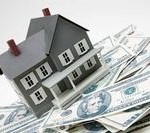Even if you feel that you are too young to be considering a Reverse Mortgage, you should still learn about this mortgage product, as you may have parents or other close relatives who may need your help when considering this type of mortgage. They are not for everyone and they may have financial consequences with your entire family. Here are some facts about Reverse Mortgages. (HUD, FHA and AARP all have additional information for you and your family if you are contemplating getting a Reverse Mortgage.)
Q. I am thinking about a Reverse Mortgage, what are the risks and what should I consider?
A. Reverse mortgages provide income or a line of credit to homeowners who are 62 or older by allowing them to tap their home equity. The Federal Housing Administration insures 90 percent of the reverse mortgages known as Home Equity Conversion Mortgages, or HECMs. These mortgages do not require repayment until the homeowner dies, permanently moves, or fails to maintain the property or pay property tax. Remaining equity belongs to the borrower or the borrower’s heirs.
While these loans make sense in some cases, consumers should clearly understand their responsibilities and risks. Some of the risks include:
Deceptive and misleading marketing
The complexity of these products and incentives for some brokers can lead to marketing practices that emphasize making the loan rather than ensuring it is appropriate for the borrower.
Conditioning the Loan on the Purchase of Other Financial Products
Because reverse mortgages often involve large lump sum payments, borrowers can be vulnerable to coercive sales of expensive annuities or long-term care insurance that can be expensive and may not meet the borrower’s needs.
High Fees
Large lump sum payments can also encourage borrowers to overlook substantial fees.
Establishing Escrow Requirements to Provide for Taxes and Insurance
Failure to maintain the property and pay taxes and insurance can result in foreclosure, so it is important to ensure these responsibilities are covered.
Q. What is a reverse mortgage?
A. A reverse mortgage is a special home loan product that allows a homeowner aged 62 or older the ability to access the equity that has accumulated in their home.
To qualify, you must own the property outright or have a small mortgage balance. Often, the lender may require, as part of the program, that the small mortgage balance be paid. A reverse mortgage does not require payments back to the lender for as long as you live there. The home itself will be the source of repayment.
The loan is underwritten based on the value of the collateral (home) and the life expectancy of the borrower. The loan must be repaid when you die, sell your home, or no longer live there as your principal residence.
Q. How can I receive payments on a reverse mortgage?
A. A reverse mortgage provides a borrower with choices in how they will access the funds. The choices include:
- a single lump sum payment;
- a regular fixed monthly payment;
- a line of credit to be accessed as you choose; or
- a combination of these options.
If you decide to take a reverse mortgage, you should decide what option best suits your needs.
Q. Are there different types of reverse mortgage products?
A. There are two basic types of reverse mortgage products:
Proprietary products offered under lender-specific criteria, and Reverse mortgage products, insured by the Federal Housing Administration (FHA) called “home equity conversion mortgages” or HECM. HECM’s account for approximately 90 percent of all reverse mortgages.
Another option that may be available is a deferred payment loan (DPL). Many local and state government agencies offer DPL’s for making basic repairs for low income and moderate income homeowners. The programs may have eligibility requirements and are offered for basic repair of your roof, wiring, plumbing or possibly for structures such as porches and stairs. DPL’s are usually your least costly option. Some states also offer property tax deferrals.
Q. What are the requirements for a Federal Housing Administration Home Equity Conversion Mortgage (HECM)?
A. To be eligible for an FHA HECM you must: Be 62 years of age or older. Own the property outright or have a small mortgage balance. Usually you will either pay off the balance yourself or it will be paid off by an advance from the reverse mortgage at closing. Not be delinquent on any federal debt. Participate in a consumer information session given by an approved counselor. Visit their website at http://www.hud.gov for additional information.
Q. I’m considering a reverse mortgage and understand that I am not required to make payments; when and how is a HECM repaid?
A. A HECM must be repaid in full when you die or sell the home. The lender recovers the monies advanced to you plus interest when the home is sold. If the home is sold for more than is required to satisfy the obligation, the remaining equity goes to you or your heirs.
- An important consideration is that a HECM becomes due and payable if:
- You do not pay property taxes, or hazard insurance or other obligations.
- You permanently move to a new residence
- You, or the last borrower, fail to live in the home for 12 months in a row.
- You allow the property to deteriorate and do not make necessary repairs.
It is important to keep these factors in mind when deciding on whether a HECM is right for you. You should consider how long you plan to live in the home, and if you will have the financial resources to maintain the property and pay the taxes.
Q. Who is responsible for upkeep on the home on a HECM?
A. It is important to remember that you are still the homeowner and continue to bear all the responsibilities of a homeowner. As the homeowner you are responsible for upkeep of the property, to make repairs, and to pay taxes and insurance.
In a reverse mortgage, there is currently no regulatory requirement for an escrow account. As the homeowner you will need to pay for repairs, taxes, and insurance. Failure to maintain the home, or pay property taxes or hazard insurance could result in foreclosure.
Q. Do reverse mortgages carry risks for consumers?
A. While reverse mortgages can provide real benefits, there are also risks. One substantial risk arises from the ability of the consumer to access the equity in the home through large lump payments. With such large sums available, some consumer might be pressured to obtain products that are not appropriate. Another risk involves failure to provide for taxes, insurance, and maintenance. Another concern is that the borrower might overlook the substantial fees and costs associated with this product, which are usually paid up front.
If you don’t fully understand how much the loan will cost, how much can be borrowed, or the circumstances under which the loan can become due, then the risk increases that you may have agreed to a product or engaged in a transaction that is not appropriate or suitable for you.
Q. Where can I find more information on reverse mortgages?
A. You can obtain information on HECMs at the FHA website http://www.fha.gov. You can also access information from AARP. The AARP Foundation also has a pamphlet titled “Reverse Mortgage Loans, Borrowing Against Your Home” that can be accessed from the FHA website itself or through the AARP Website. Get a Reverse Mortgage Fact Sheet here.





Comments on this entry are closed.